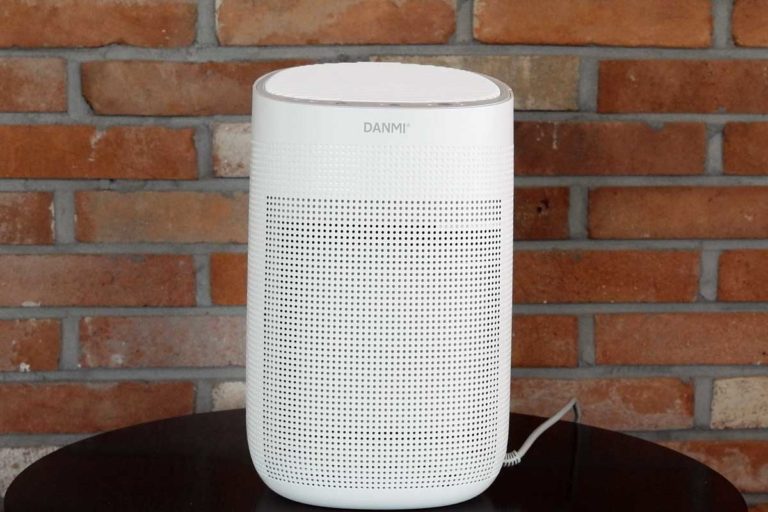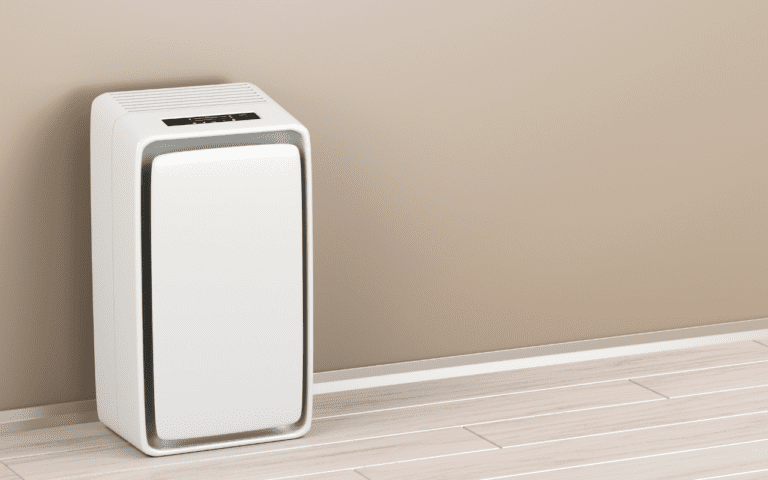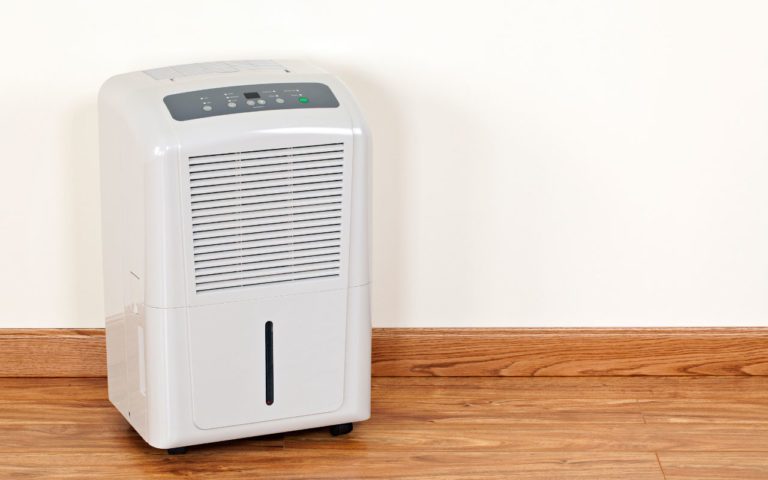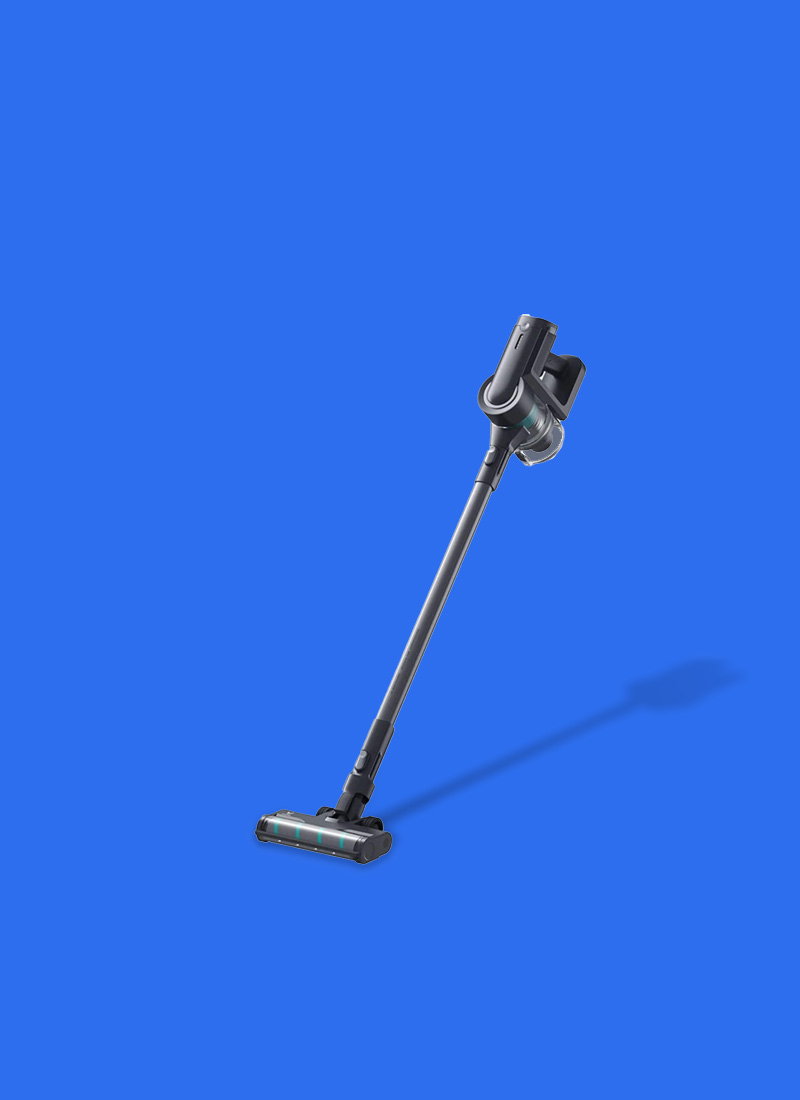ⓘ We are reader-supported and may earn a small commission at no additional cost to you if a purchase is made through one of our links.
Dehumidifiers can help reduce humidity, prevent moisture-related problems, and do wonders for your home’s air quality. Some manufacturers even claim that they can help treat colds and allergies. But can they really?
It is not uncommon for manufacturers to have many claims about their products, particularly when it comes to the health benefits they offer. They are, after all, trying to make a sale. Dehumidifiers, for example, are among the products today that claim to do so much. Aside from reducing and maintaining the right humidity levels in your home, preventing moisture-related problems, and improving your overall air quality, manufacturers also say they can help treat colds and allergies. But are these all true? Let’s find out here.
In this article, we will be covering the following topics:
Overview
Excessive moisture is a problem many homeowners deal with. It can lead to many issues, including damages to paint, wood, siding, and insulation. Not only that but it can also affect your health as it creates the perfect environment for mildew, mould, dust mites, and other bacteria to thrive. According to the Environmental Protection Agency (EPA), these biological contaminants can cause infectious illnesses, expose you to disease-causing toxins, and trigger allergic reactions. They can also cause several health problems, including coughing, watery eyes, sneezing, fever, and more.
Here’s where dehumidifiers come in. These are devices that remove excess moisture from the air and condense it into water. They can eliminate musty odors and prevent mildew from growing, which makes them good for your home’s structural integrity. Not only that, but they can be beneficial to you and your family’s health as well.
Read our article on how dehumidifiers work for a more in-depth understanding.
Do Dehumidifiers Work?
Yes. Dehumidifiers are effective in extracting water from the air and reducing humidity. They are also found to offer many health benefits, which is why many recommend using them. The University of Rochester Medical Center, for example, noted that “dehumidifiers are critical for households in humid climates with very old people or very young children, or families with a history of allergies or asthma.” The University of Massachusetts Amherst also suggests using dehumidifiers after floods and in areas with persistent high relative humidity. Additionally, using a dehumidifier is listed by the National Asthma Council Australia as one of the ways to help control humidity levels in your home.
If you’re interested in picking up a dehumidifier make sure to read our guide to help buy the best one.
Now, you might be wondering, how does a dehumidifier work? Similar to a vacuum cleaner, this device sucks in air from a room and takes the moisture from it. It then blows back the air out into the room again but with the moisture already collected into a collection tank, which you have to empty regularly. Other units can also be used with a hose to direct the water to a drain.
What Can a Dehumidifier Do for Your Health?
Reduce Allergy and Asthma Triggers
Anything that can make allergies and asthma worse is called a trigger. While it might be impossible to completely get rid of all the triggers in your surrounding, you can use a dehumidifier to limit your or your family’s exposure to them. To give you a clearer picture, it can help reduce the following organisms and contaminants:
- Mould: According to NSW Health, “mould can grow indoors in wet or moist areas that lack adequate ventilation.” When it thrives, it produces spores that are carried in the air, causing health problems to those who are sensitive or allergic to them. For those with asthma, inhaling these spores may even cause an asthma attack.
The National Institutes of Health (NIH) lists the use of a dehumidifier to control mould indoors and keep the air drier. It further states that keeping indoor moisture levels or humidity at less than 30% to 50% can keep mould spores down.
- Dust Mites: For people with allergies and asthma, dust mites are one of their major indoor triggers. Exposure to them can lead to mild to severe allergic symptoms and cause asthma attacks. In mild cases, it can cause occasional watery eyes, sneezing, and runny nose. In more severe cases, it can result in a persistent cough, facial pressure, sneezing, cough, or severe asthma attack.
Dust mites thrive in warm, humid environments. So to control them and their allergens, you will need to reduce the relative humidity in your home. This is proven by a study, which found that maintaining an indoor RH of less than 51% through air conditioning and high-efficiency dehumidifiers showed significant reductions in dust mites and their allergens.
Prevent Musty Odor
A musty or foul odor can be caused by humid climates or when there is too much moisture in the air. As a result, it traps pollutants and foul odors. It also provides the perfect environment for mildew and mould to grow.
So if you notice a musty or foul odor anywhere in your home, consider investing in a dehumidifier. It will help reduce or prevent such odors by pulling the moisture out of the air in the area. It will also help you maintain a healthy indoor humidity level and create a more comfortable environment for you and your family. With a dehumidifier, a room or area will also feel less stuffy, so you are more capable of making it smell great without using potentially harmful chemicals.
Reduce Pest-Related Issues
Allergens and foul odors are not the only unwelcome things that come with moisture or excess humidity. It can also attract pests such as cockroaches, spiders, centipedes, ants, silverfish, earwigs, insects, and rodents. Not only are they a huge nuisance and inconvenience, but they can also lead to health problems. According to the Centers for Disease Control and Prevention (CDC), exposure to some of these pests can trigger asthma episodes. Some can also be vectors for significant problems that can affect you and your family’s health and well-being.
To reduce the chances of pests infiltrating your home, you should make the environment hostile for them. One way to do that is by keeping the humidity levels low by using a dehumidifier.
Can Dehumidifiers Help Treat Colds?
No. The main job of a dehumidifier is to take moisture out of the air. Thus, making it drier. And dry air will do more harm than good when you have a dry cough or stuffy nose. Conditions, including pneumonia, can also become worse if the air is too dry. So for colds, a humidifier is a much better option according to Healthline as it will help relieve symptoms like wheezing and coughing.
What to Look for in a Dehumidifier
If you do decide to invest in a dehumidifier, here are the main things you need to look for:
- Automatic Humidity Detection (Humidistat): This will monitor and allow you to set your target relative humidity (RH), which is the amount of water in the air for a given temperature. According to the National Asthma Council Australia, most people find an RH level between 30-60% most comfortable with indoor humidity ideally between 30-50%. Of course, this will depend on the climate you live in and your personal preference.
Humidistat is different depending on the model. Some have precise number settings, while others have very few basic settings like low, medium, and high. Some, however, have rotary-dial humidistats that have no precise markings, which makes it hard for you to find the actual humidity level you want.
- Effectiveness in Different Climates: Excessive moisture in the air can be present at high and low temperatures. They can also occur in different climates. So make sure that the unit you are buying is suited to the climate you live in.
- Tank: If a dehumidifier’s tank is too small, you will need to empty it several times a day. On the other hand, when it is too big, it can be too bulky. That said, a good dehumidifier should have a tank that’s big enough to hold at least 4 liters of water.
- Portability: Dehumidifiers can be heavy. So having portability features such as castors, wheels, and handles can be useful if you are planning to take the device from room to room.
- Continuous Drainage: If you are planning to use the device in the same location for a long time, having a continuous drain option will come in handy. Some units come with an adaptor hose that allows the collected water to flow straight down a drain. For other models, you will have to buy your own hose.
- Noise Level: Will you be using the dehumidifier in your room? If so, look for one that will not distract you when sleeping. The best devices feature a sleep mode, which will make them run quieter.
- Air Purification: Dehumidifiers nowadays have air purification functions. While they are not as effective as stand-alone air purifiers, they can help make your indoor air quality better and healthier.
Conclusion
Sure, some clinical trials like the one from Singh and Jaiswal in 2013 have not found much evidence on the benefits of dehumidifiers for those with chronic asthma. There is also still no significant scientific proof of how they can help treat allergies or colds. However, it is proven that these devices can help reduce moisture. And when moisture is controlled, you can reduce the growth of mold and mildew, dust mite allergens, and even pests – which are all found to be allergy and asthma-causing agents.
So while dehumidifiers do not necessarily treat allergies, they do prevent them. And as they say: prevention is always better than cure.





